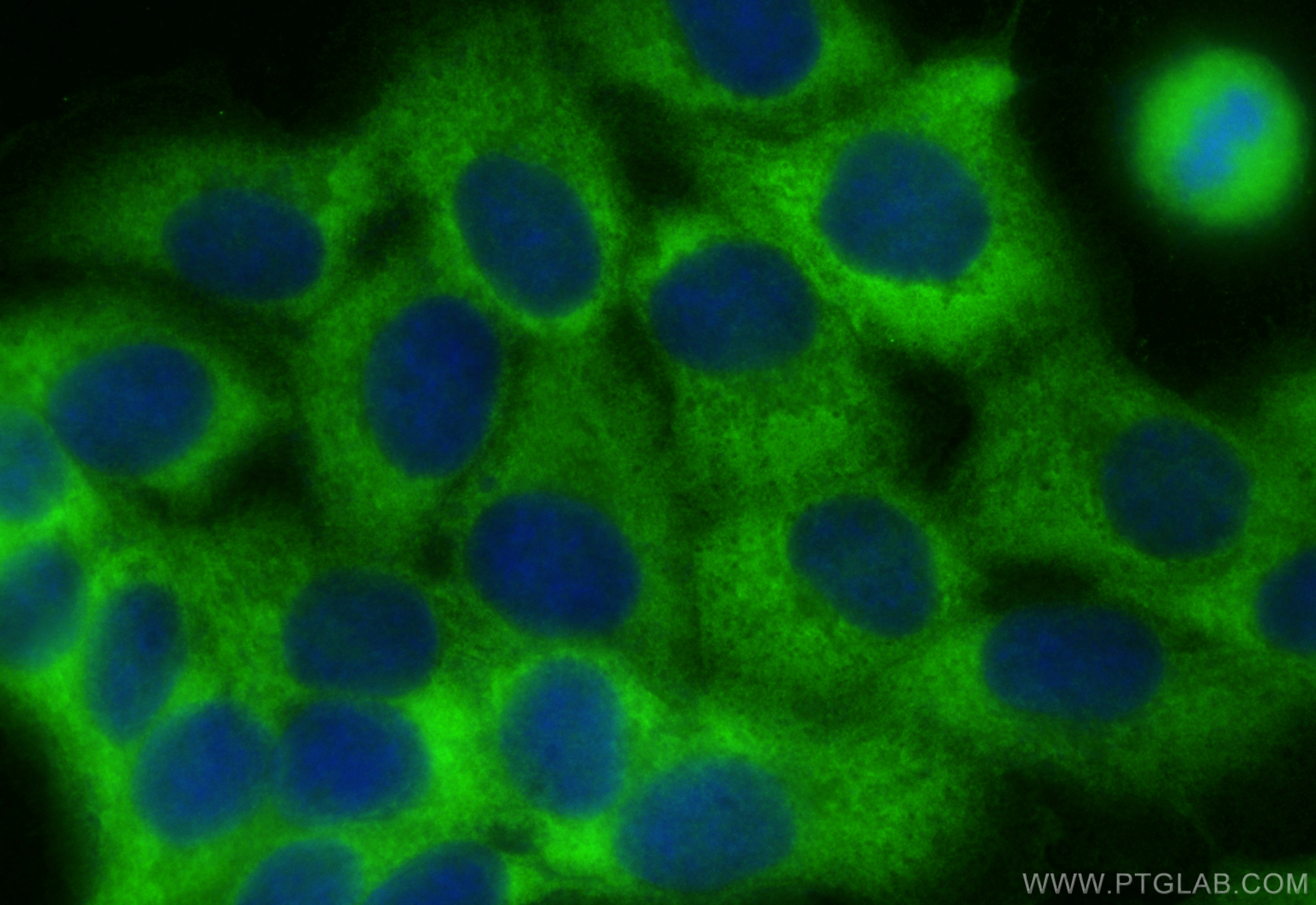验证数据展示
经过测试的应用
| Positive IF/ICC detected in | A431 cells |
推荐稀释比
| 应用 | 推荐稀释比 |
|---|---|
| Immunofluorescence (IF)/ICC | IF/ICC : 1:50-1:500 |
| It is recommended that this reagent should be titrated in each testing system to obtain optimal results. | |
| Sample-dependent, Check data in validation data gallery. | |
产品信息
CL488-83264-5 targets EFHD2 in IF/ICC applications and shows reactivity with human samples.
| 经测试应用 | IF/ICC Application Description |
| 经测试反应性 | human |
| 免疫原 | EFHD2 fusion protein Ag35084 种属同源性预测 |
| 宿主/亚型 | Rabbit / IgG |
| 抗体类别 | Recombinant |
| 产品类型 | Antibody |
| 全称 | EF-hand domain family, member D2 |
| 别名 | |
| 计算分子量 | 27 kDa |
| 观测分子量 | 33 kDa |
| GenBank蛋白编号 | BC023611 |
| 基因名称 | EFHD2 |
| Gene ID (NCBI) | 79180 |
| RRID | AB_3673230 |
| 偶联类型 | CoraLite® Plus 488 Fluorescent Dye |
| 最大激发/发射波长 | 493 nm / 522 nm |
| 形式 | Liquid |
| 纯化方式 | Protein A purification |
| UNIPROT ID | Q96C19 |
| 储存缓冲液 | PBS with 50% glycerol, 0.05% Proclin300, 0.5% BSA , pH 7.3 |
| 储存条件 | Store at -20°C. Avoid exposure to light. Stable for one year after shipment. Aliquoting is unnecessary for -20oC storage. |
背景介绍
EFHD2 also named Swiprosin-1, is a Ca2+ binding actin protein. The expression of EFHD2 is upregulated during the activation of immune cells, epithelial and endothelial cells. The expression of EFHD2 is regulated by diverse signaling pathways that are contingent upon the specific type of cells. EFHD2 consists of 240 amino-acids. Based on the composition, the predicted molecular weight was reported to be 27 KDa while the apparent molecular weight was 33 KDa.
实验方案
| Product Specific Protocols | |
|---|---|
| IF protocol for CL Plus 488 EFHD2 antibody CL488-83264-5 | Download protocol |
| Standard Protocols | |
|---|---|
| Click here to view our Standard Protocols |
